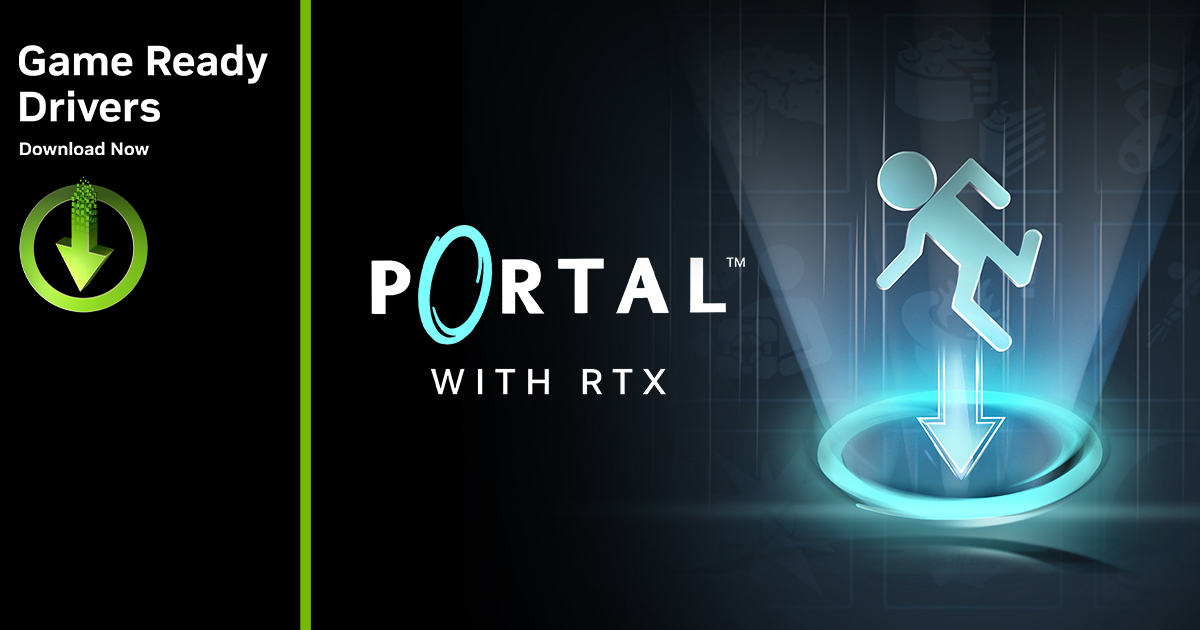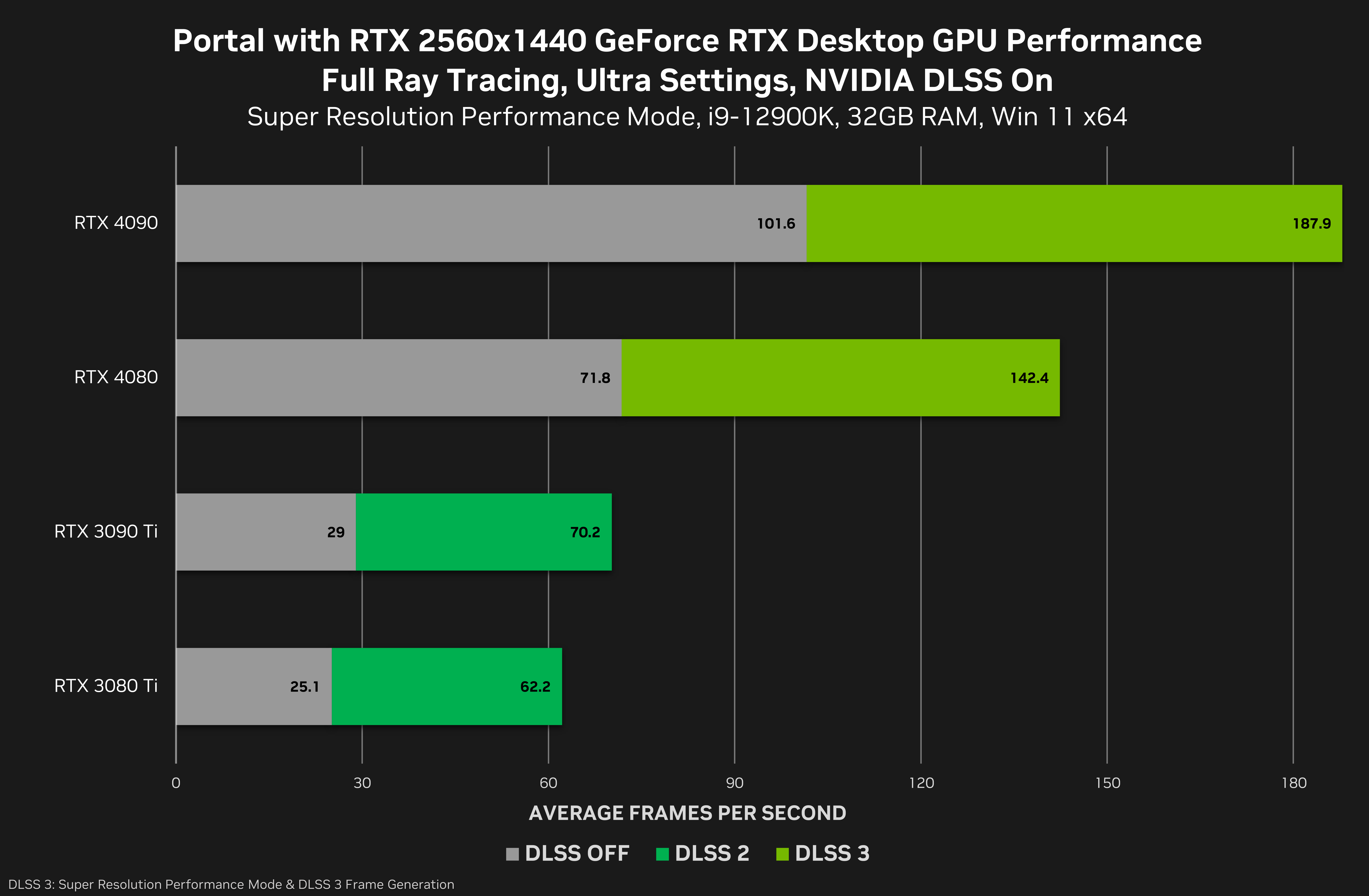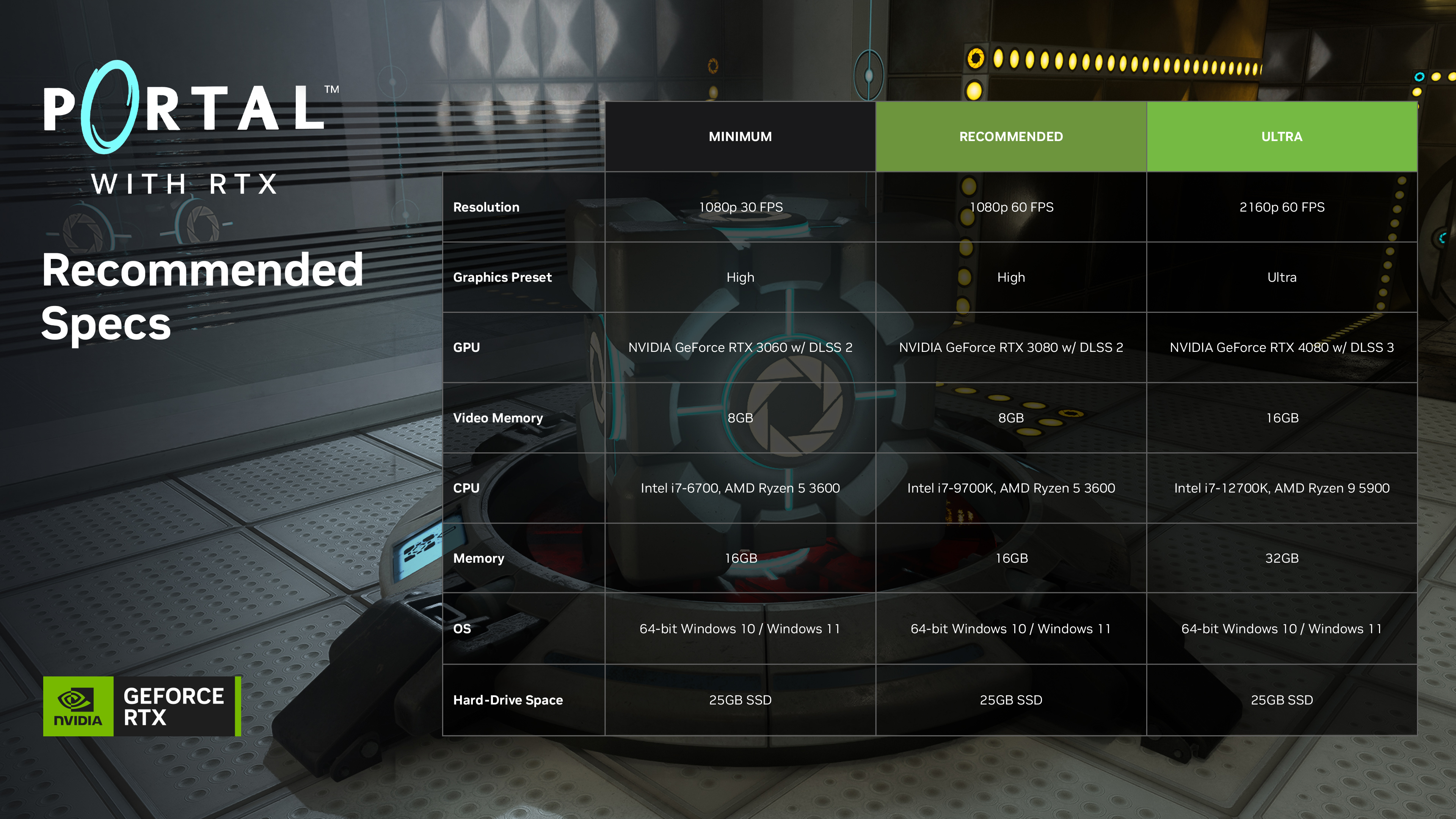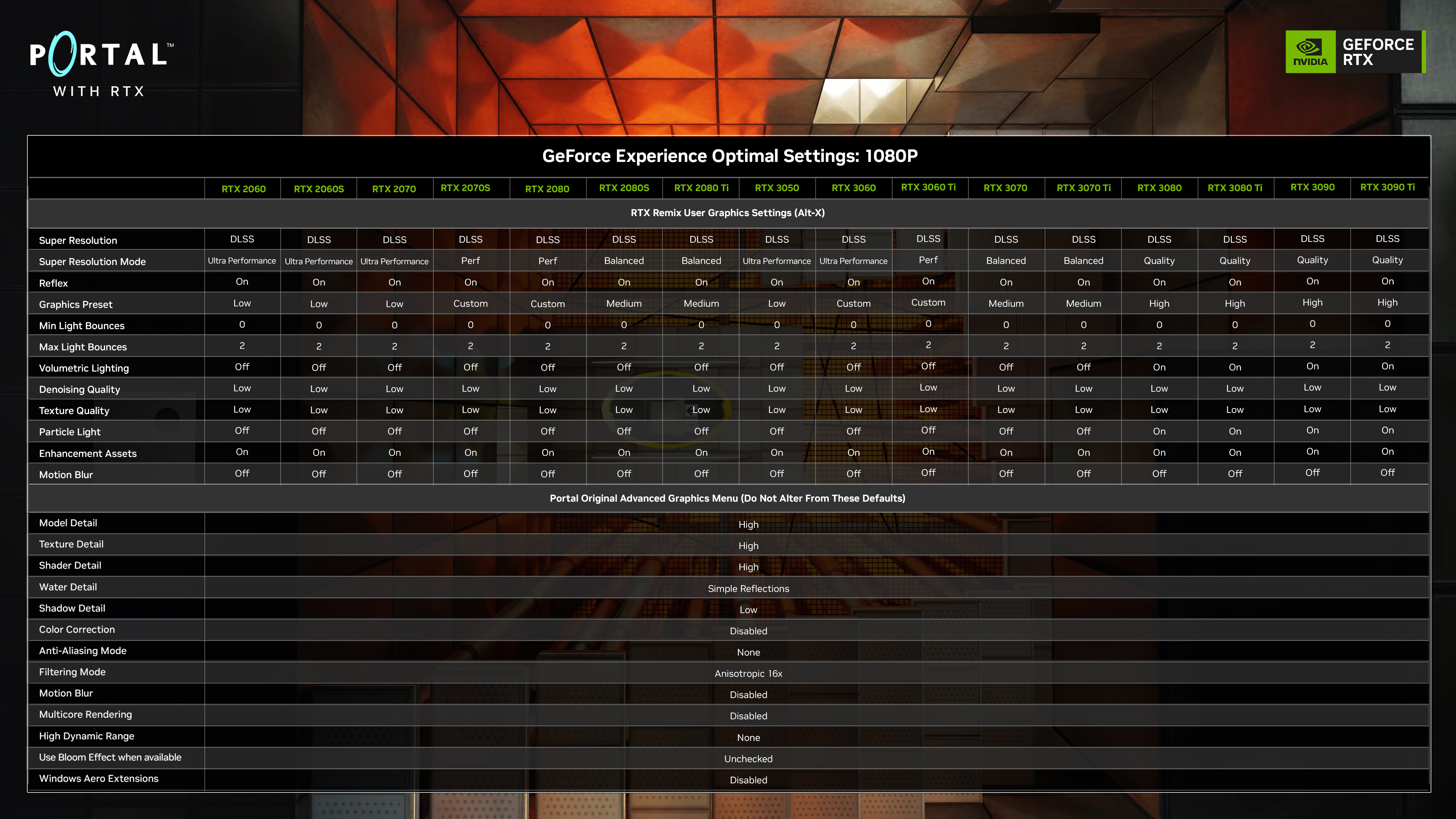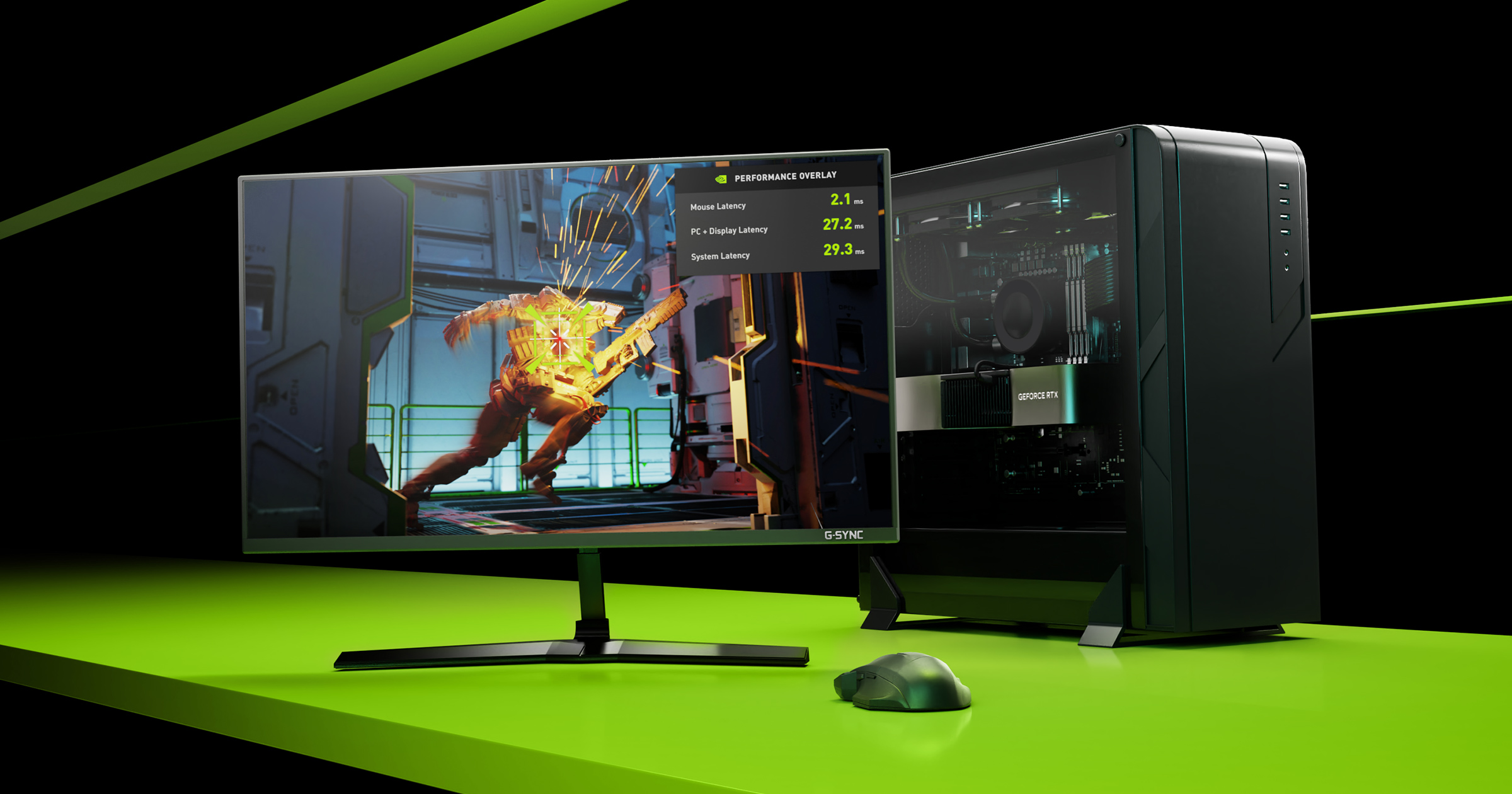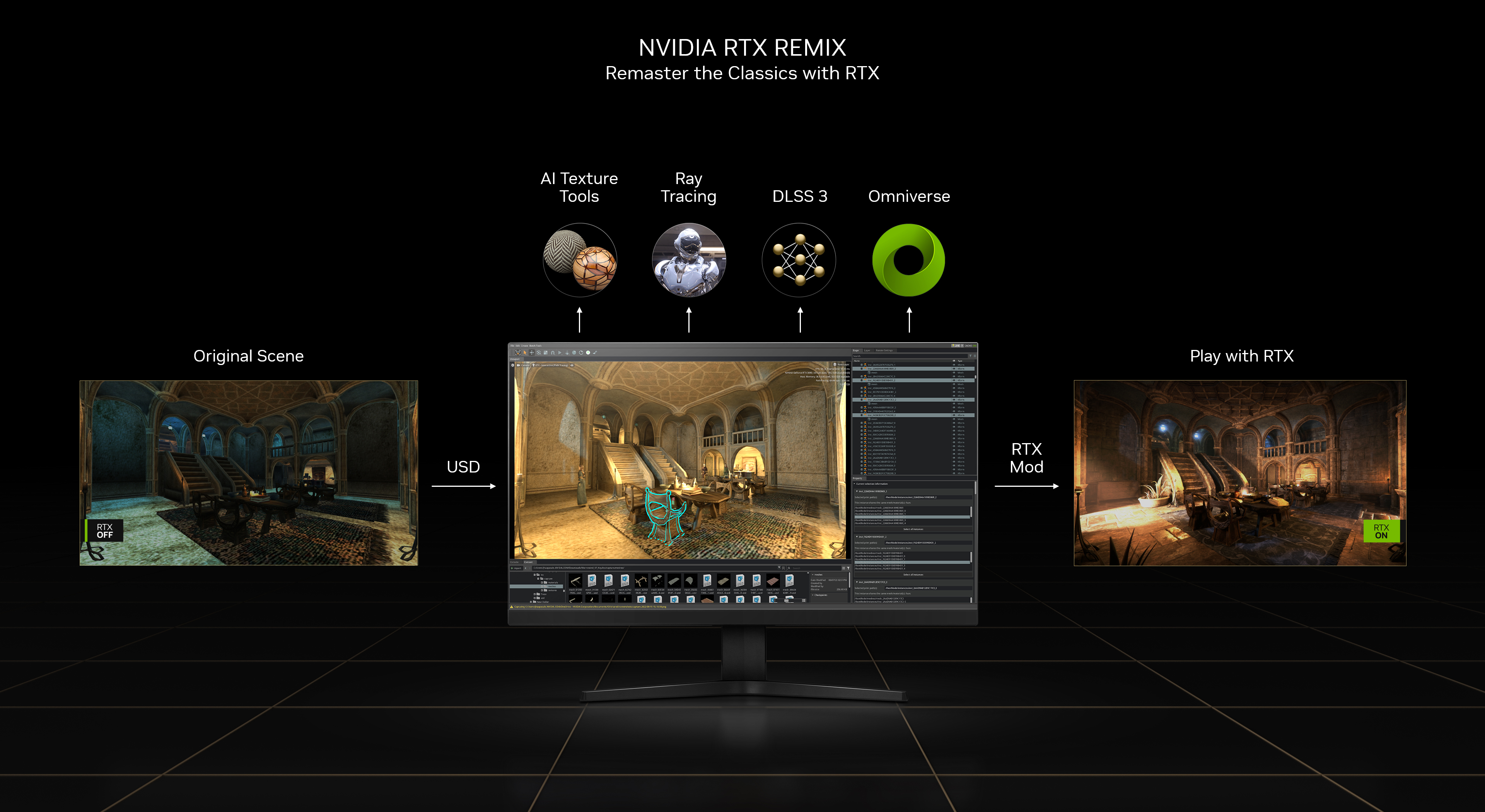Portal with RTX Out Now: A Breathtaking Reimagining Of Valve’s Classic With Full Ray Tracing & DLSS 3
Portal with RTX is out now. Portal remains a timeless classic, with gameplay as fresh, engaging and exciting as it was back in 2007. Relive the critically acclaimed and award-winning Portal reimagined with ray tracing, the groundbreaking AI-accelerated performance of NVIDIA DLSS 3, and the best responsiveness with NVIDIA Reflex. Start thinking with portals, with RTX On.
Each ray of light uses GPU-intensive full ray tracing, also known as path tracing, to accurately model the real-world properties of light, and how that light affects every surface and object. Compared to our work on Quake II RTX and Minecraft with RTX, light bounces up to four times more, and new technologies are incorporated, making Portal with RTX one of the most advanced showcases for simulated light in gaming. Illumination, shadows, reflections, refraction, and everything in between are all a result of the fully ray traced world, and their interactions with the upgraded and enhanced assets that have been rebuilt hand in hand with Valve. For more details about full ray tracing check out the full tracing section in this article.
See what press outlets are saying about Portal with RTX:
- "Portal With RTX is a triumph" - PC Mag
- “ABSOLUTELY STUNNING” - PressStart
- "...transformative experience" - Worth Playing
- “Portal’s RTX proves that ray tracing matters.” - Polygon
- “cutting-edge visual showcase” - AUS Gamers
Original Portal On Sale Now - 90% Off For A Limited Time
To experience Portal with RTX, you need to own the original Portal. If you don’t already own Portal, it’s now on sale for 90% off on Steam for a limited time. It’s the perfect time to experience one of the best games of all-time, now with full ray tracing and DLSS 3.
To celebrate Portal with RTX’s release, we hosted the Portal with RTX Launch Party. Check out the special broadcast below to see new fully ray traced gameplay, a making-of Portal with RTX video, and other surprises:
Portal with RTX Sweepstakes: Win A GeForce RTX 40 Series GPU
We want to read all of your favorite Portal memories, and you could win a GeForce RTX 40 Series GPU in the process! Until December 30th:
Portal with RTX GeForce Game Ready Driver Available Now
GeForce Game Ready Drivers deliver optimizations and enhancements direct to your PC, ensuring your gameplay in Portal with RTX, and every other game, is at its very best. So for the fastest performance, smoothest gaming, and an optimized experience when using NVIDIA DLSS, NVIDIA Reflex, and full ray tracing, download and install our new Portal with RTX GeForce Game Ready Driver from GeForce Experience or GeForce.com.
Portal with RTX Full Ray Tracing: The Future Of Video Games
Portal with RTX offers a preview of gaming’s future, where every frame of gameplay is rendered with stunning full ray tracing, hi-res physically based textures, and cutting-edge technology that makes all of this playable in real-time.
Full ray tracing is an advanced, GPU-intensive version of ray tracing, also known as path tracing. It unifies all lighting effects, such as shadows, reflections, global illumination, refraction, and more, into a single ray tracing algorithm. That means every light in Portal with RTX is ray traced.
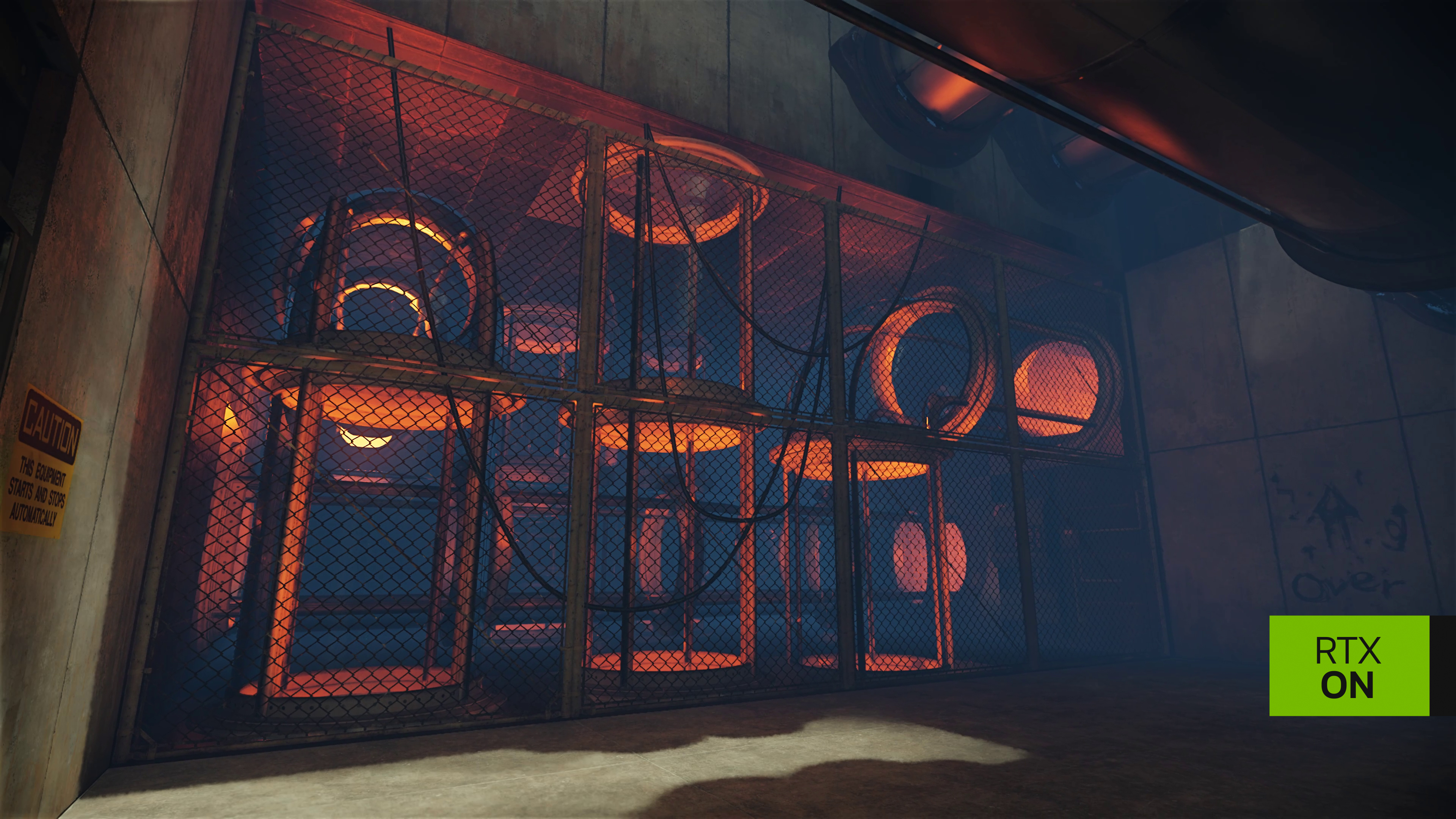
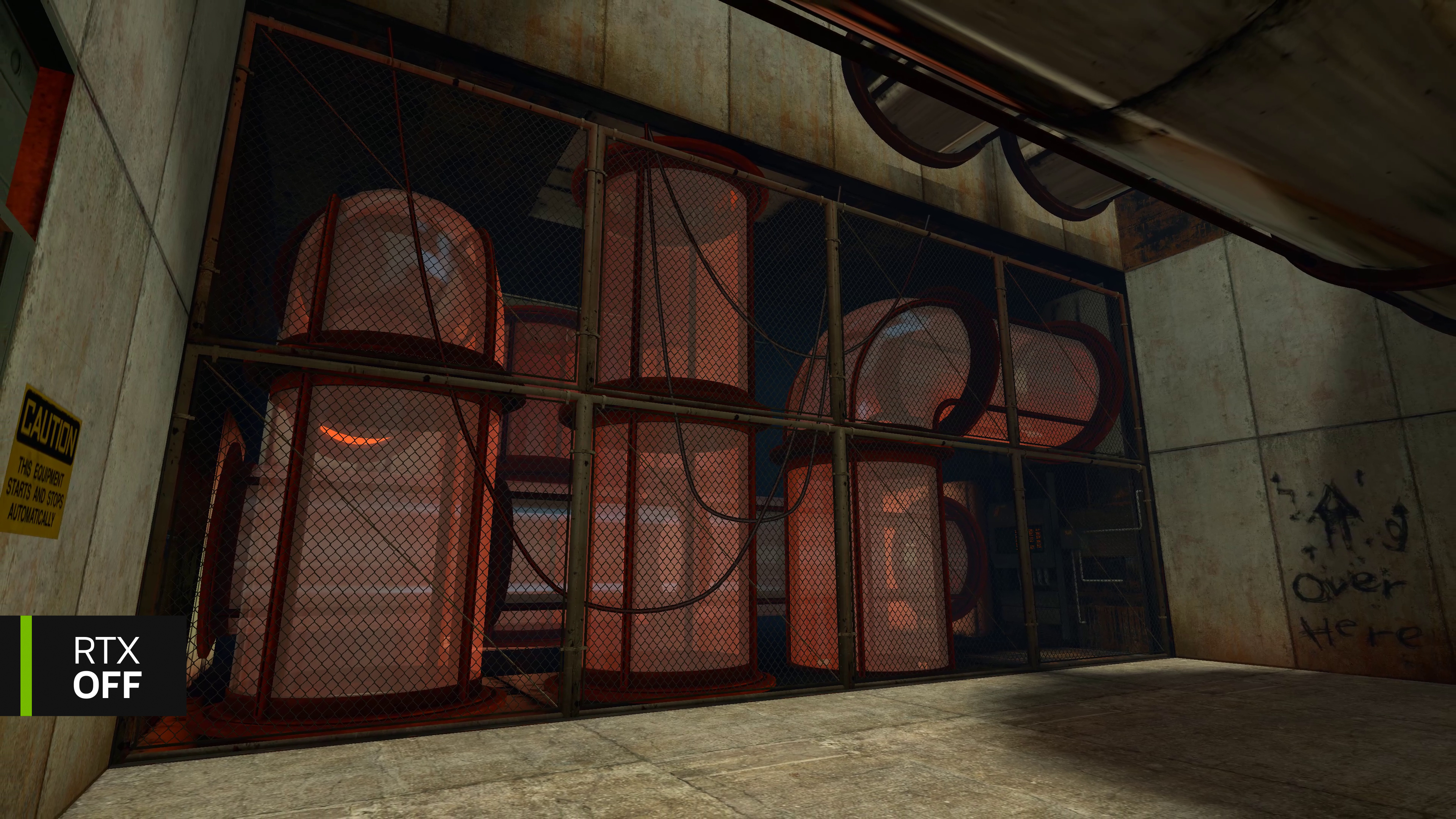
Light can be cast from behind the player, or from another room, and in Portal with RTX, light even travels through portals. Glass refracts light, surfaces reflect detail based on their glossiness, reflections can be cast into the scene from behind the player, objects can self-reflect, and indirect light from off-screen illuminates and affects what you see. As you can see from the images and videos on this page, the difference is incredible.
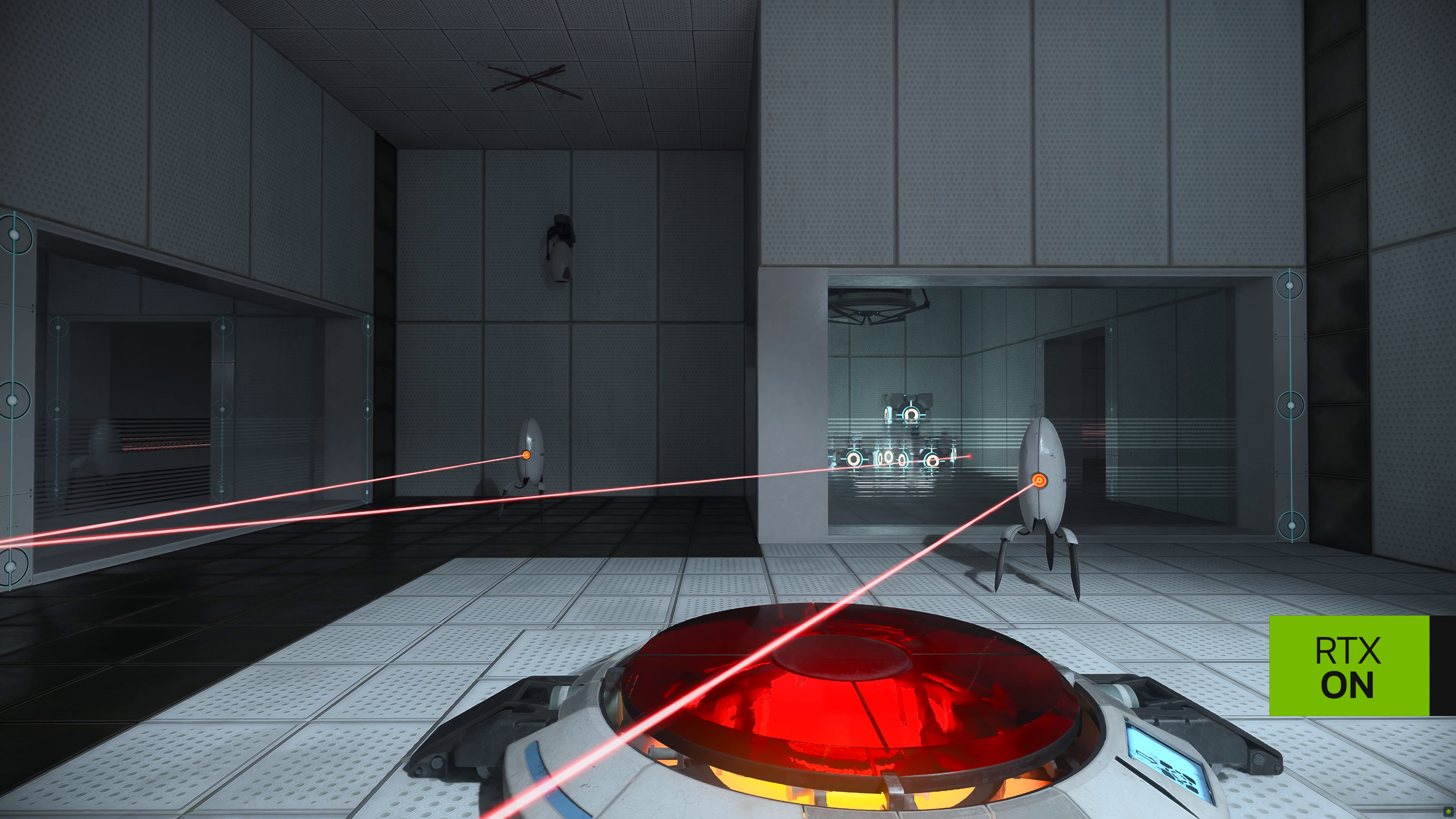
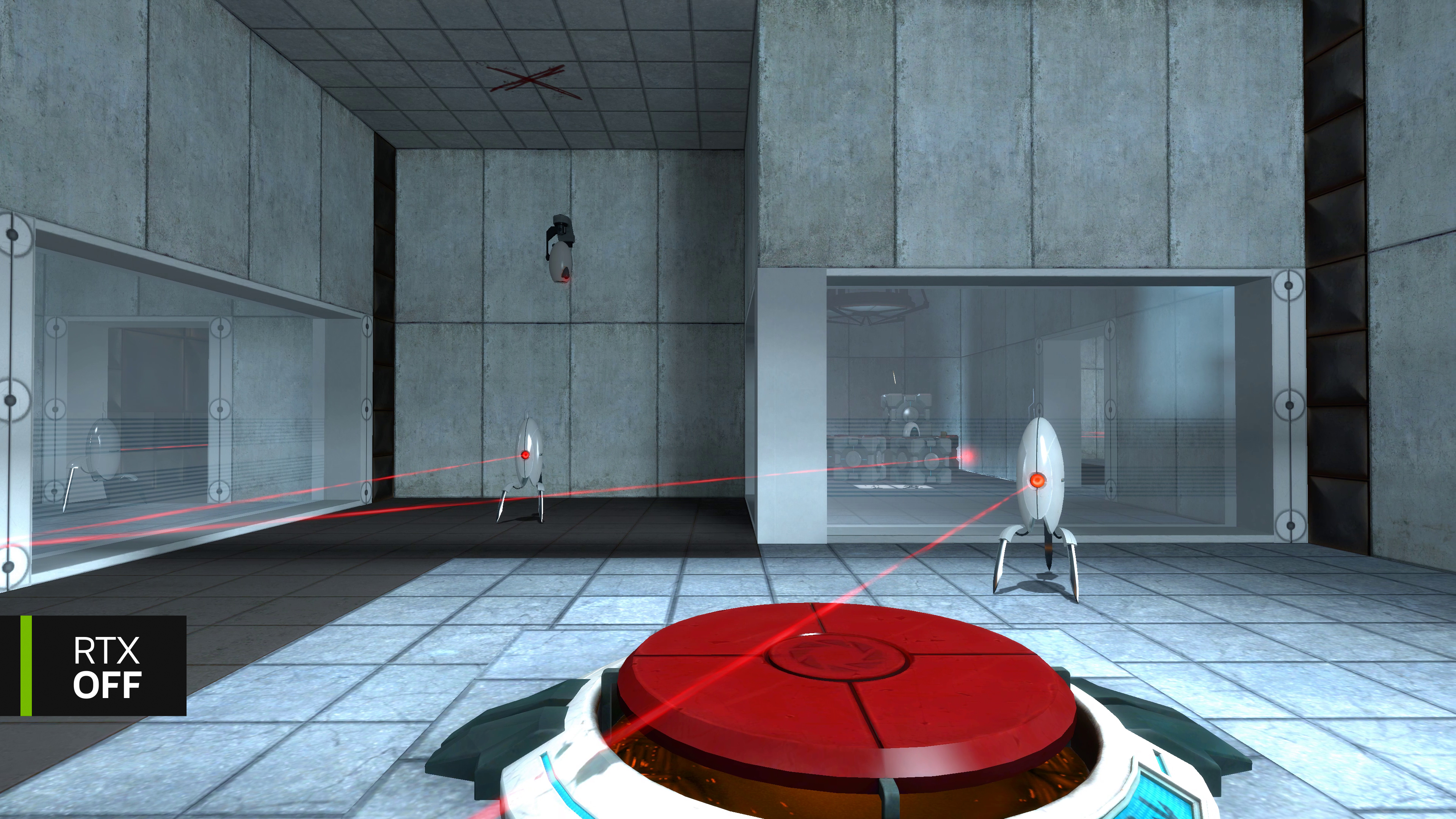
Compared to Quake II RTX and Minecraft with RTX, the full ray tracing introduced by RTX Remix is even more advanced, bouncing light up to four times instead of just once, improving quality, immersion, and the simulation of real-world light. Additionally, we’ve also introduced several new ray tracing techniques that further improve quality, while also being more performant.
NVIDIA RTX Direct Illumination (RTXDI) enables the addition of countless direct light sources, big and small, each casting light and shadows.
NVIDIA Reservoir Spatio Temporal Importance Resampling Global Illumination (ReSTIR GI) enhances indirect light, enabling it to bathe a scene and illuminate dark corners that are not lit directly. And it also works smarter than previous ray-traced global illumination techniques, improving the efficiency of our ray tracing denoiser.
A denoiser converts the raw ray-traced output into the beautiful on-screen graphics you experience in Portal with RTX and other ray-traced games. NVIDIA Real Time Denoisers (NRD) is a new spatio-temporal ray tracing denoising library that assists in denoising ray traced images in real-time, with superior performance and quality. Portal with RTX and other new ray-traced games and game updates leverage NRD for maximum quality and performance.
Portal with RTX also introduces a number of graphical enhancements that improve ray tracing, immersion, realism, and your overall experience.
Volumetric ray-traced lighting is perhaps the most spectacular, converting the fog effects of old into true, properly simulated volumetrics. Now, thick captivating beams of light pierce through smoke and fog, with light rays realistically scattering, affecting a scene in a realistic manner. There are plenty of others, too, enriching each test chamber in ways developers could only dream of back in 2007.
Portal’s unique selling point is of course the ability to take anything through a portal, and see through them, something that hadn’t been done before its release. With full ray tracing, light can pass through portals, too, even from the moving High Energy Pellets, causing shadows, reflections and lighting to shift in step.
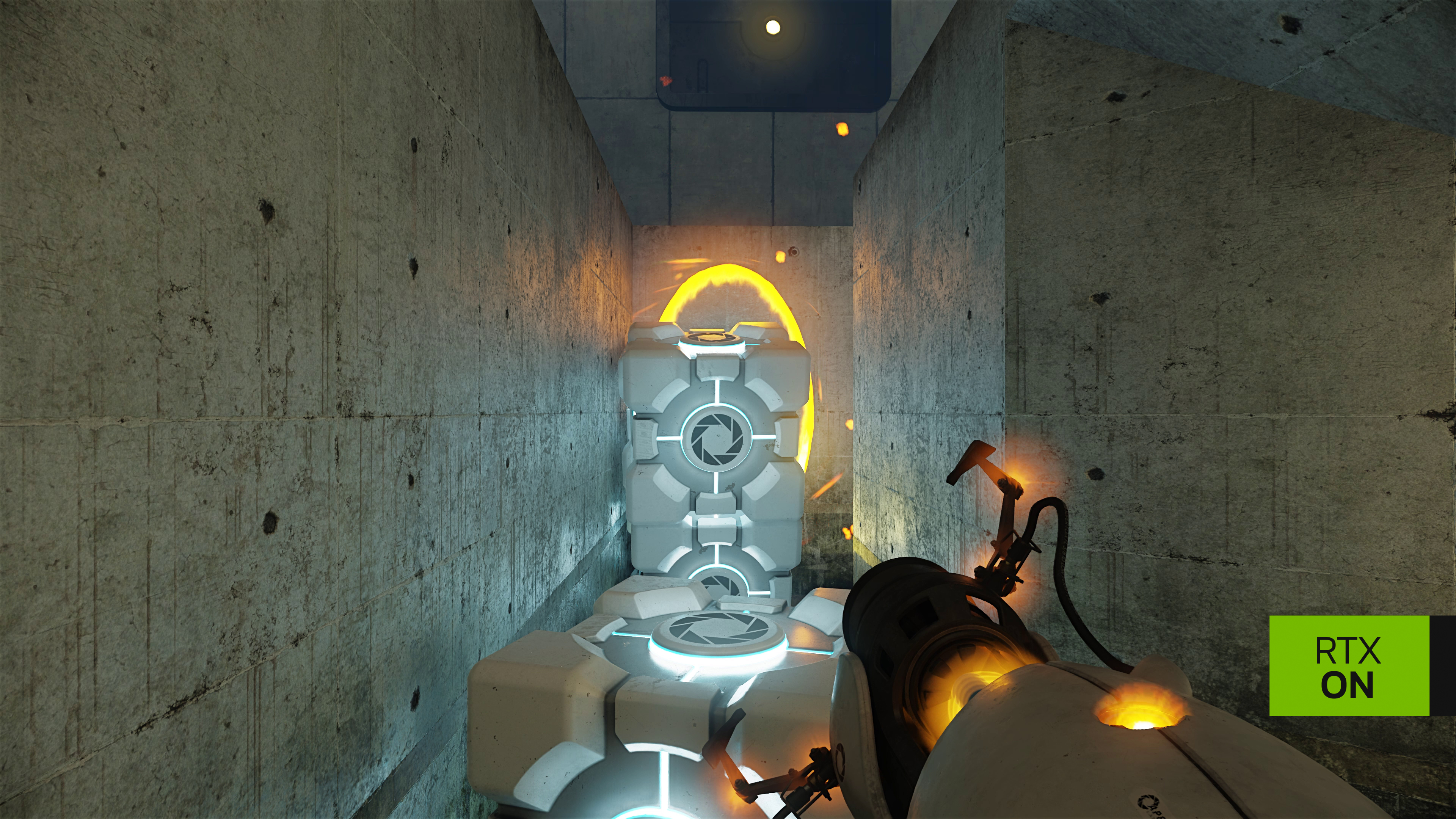
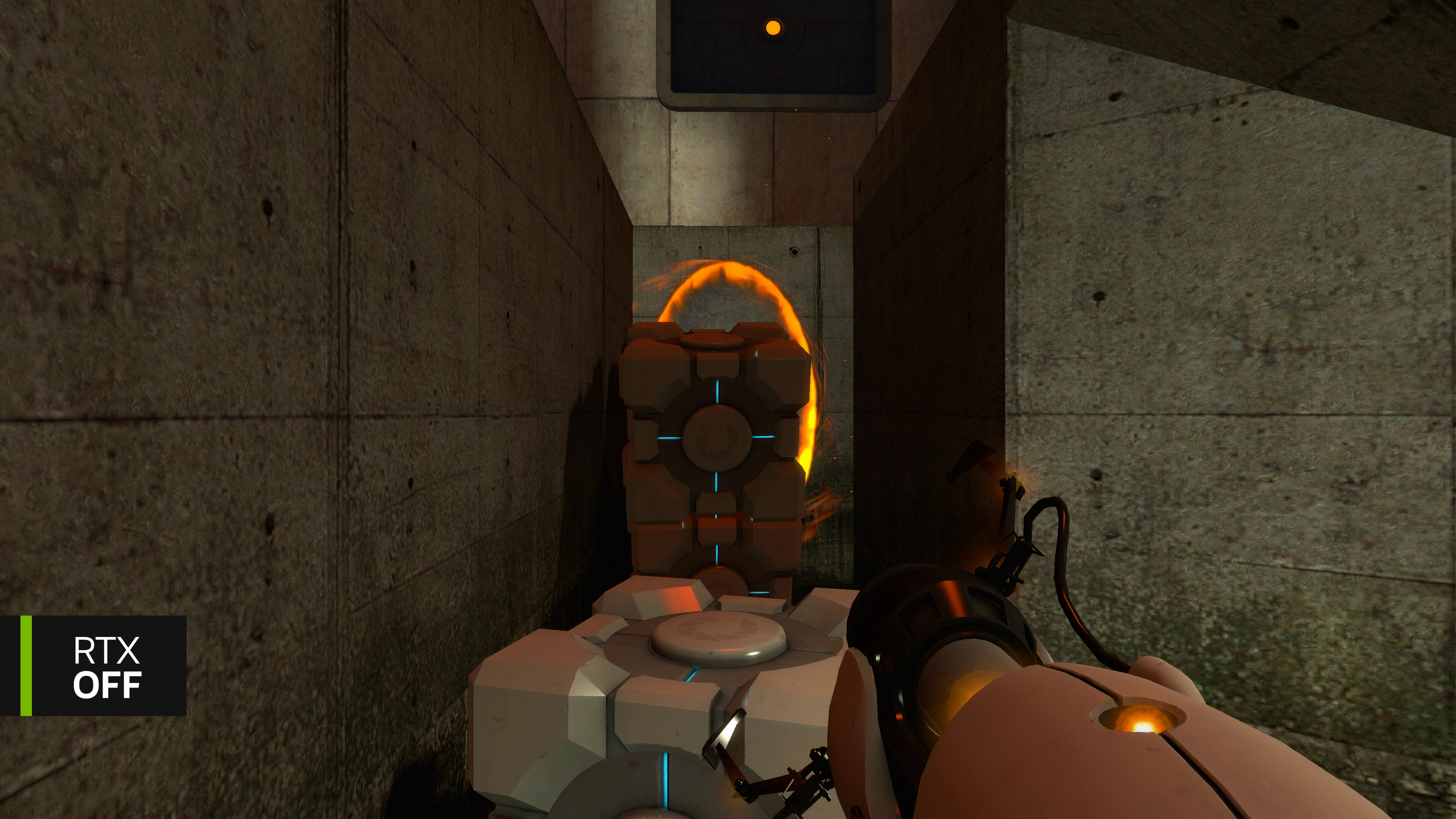
Portal with RTX also introduces ray-traced emissive particles, and emissive game elements, such as our remixed and enhanced Weighted Storage Cube. These all cast light, which is of course fully ray-traced and rendered realistically in the game. For games that make extensive use of particle effects, the upgrade will be jaw-dropping. We’ve also made some fun alternative cubes that can be unlocked by finding QR codes in the game. Scan them with your phone, press Alt+X in-game, go to About > Secrets, enter the code you see on your phone, check the box next to the new entry in the list, and all cubes will be switched to the custom cube you’ve unlocked.
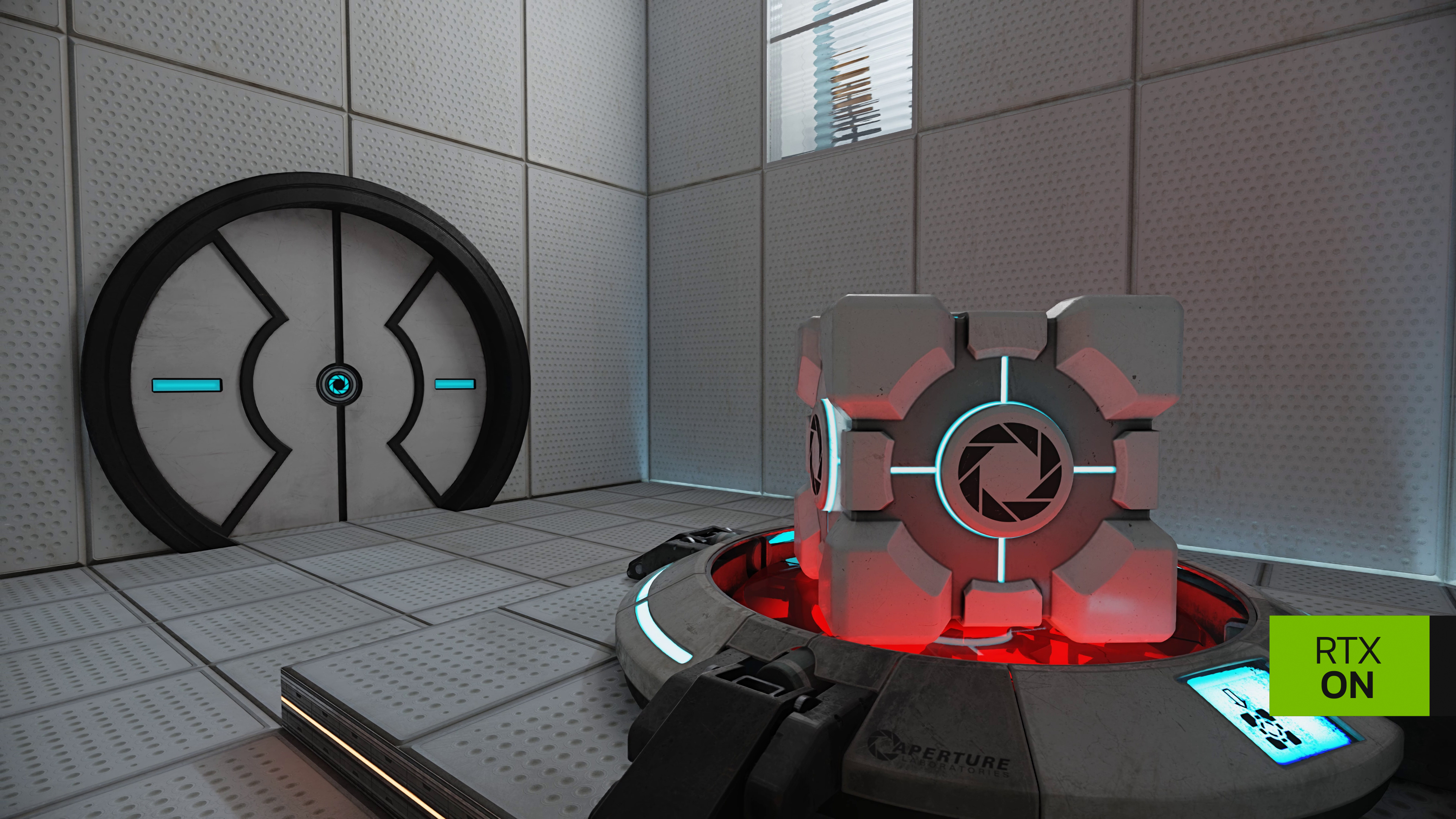
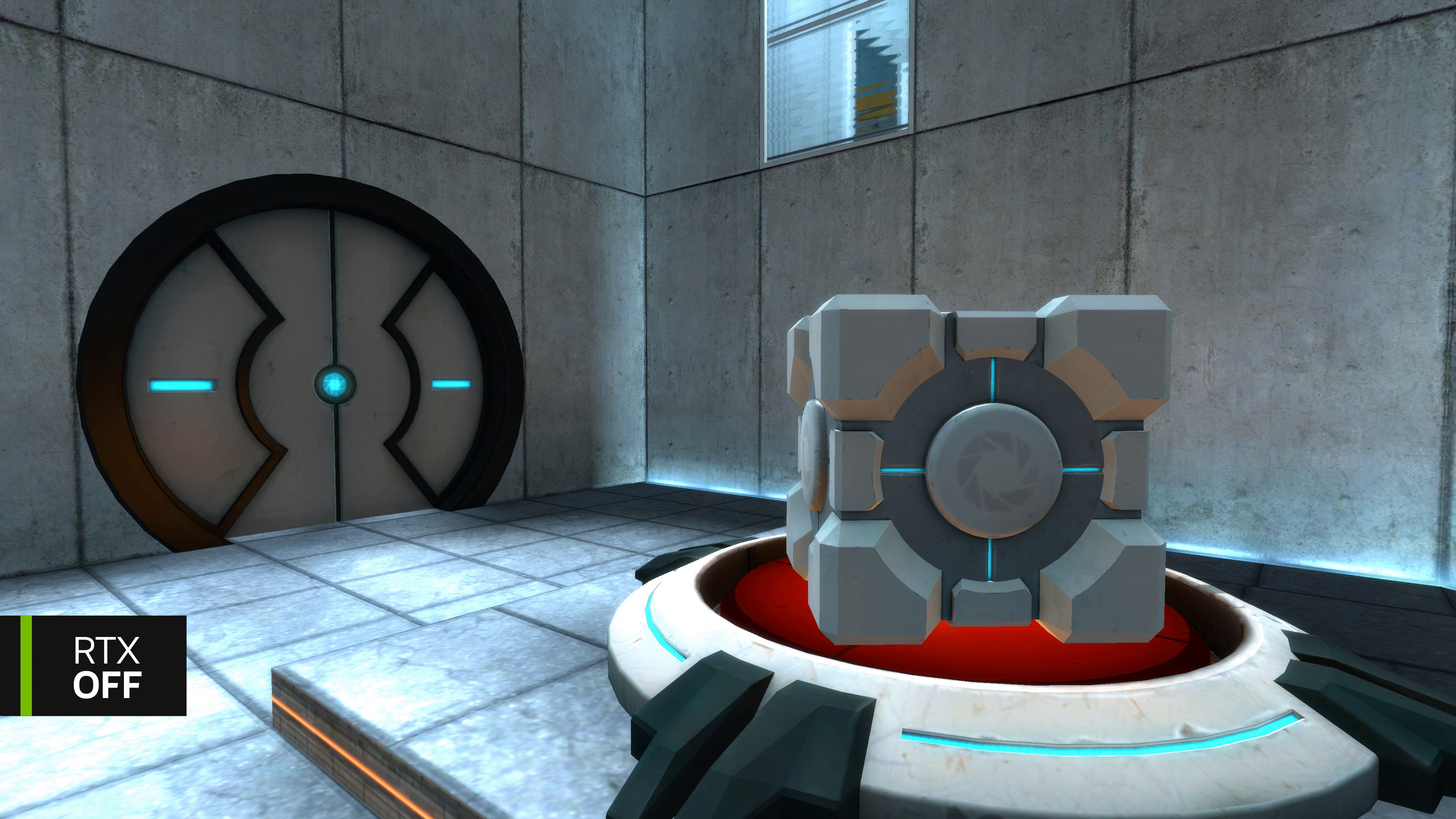
In Portal with RTX, the test facility’s lights get an upgrade, too. The original Portal used point lights exclusively. For a greater variety of lighting, and improved quality, lights of different shapes and sizes have been introduced, along with area lights, enabling entire rooms to be illuminated by a single bright light source, such as the offices that loom over test chambers.
To take full advantage of ray tracing, your game assets need to have physically based properties, and ideally be geometrically detailed, too. Without physically based rendering (PBR) materials, light reacts identically on all surfaces. By specifying the attributes of each material and their reflectivity, light bounces, reflects, diffuses and dissipates realistically across each texture.
As for surfaces, if they’re flat, as most were in games back in 2007, light won’t react realistically. In the process of remaking each of Portal’s surface materials, we’ve introduced detail, such as bumps, divots and rivets, allowing light to fall across them accurately, bouncing light, creating new shadows, and generating accurate reflections.
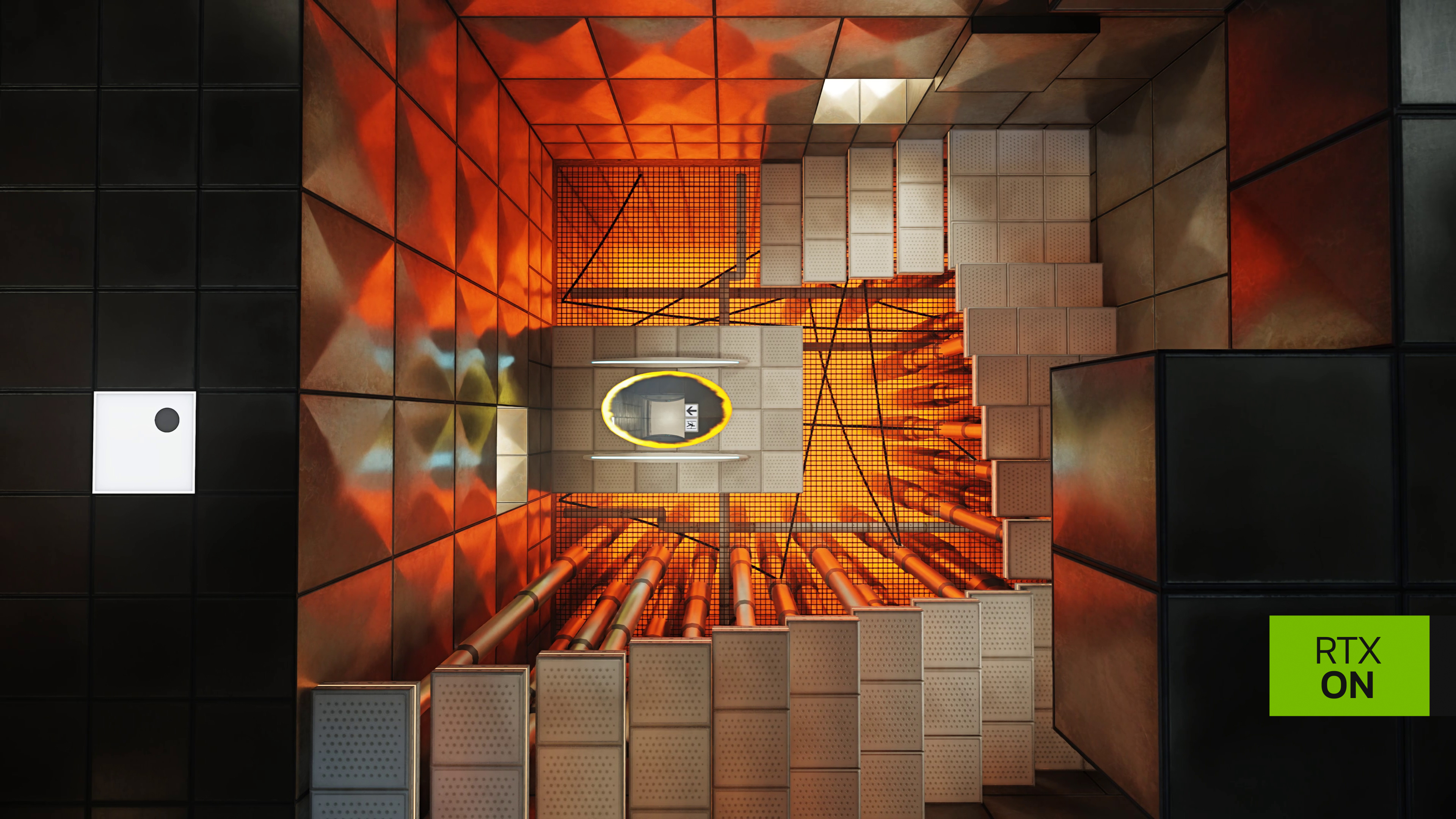
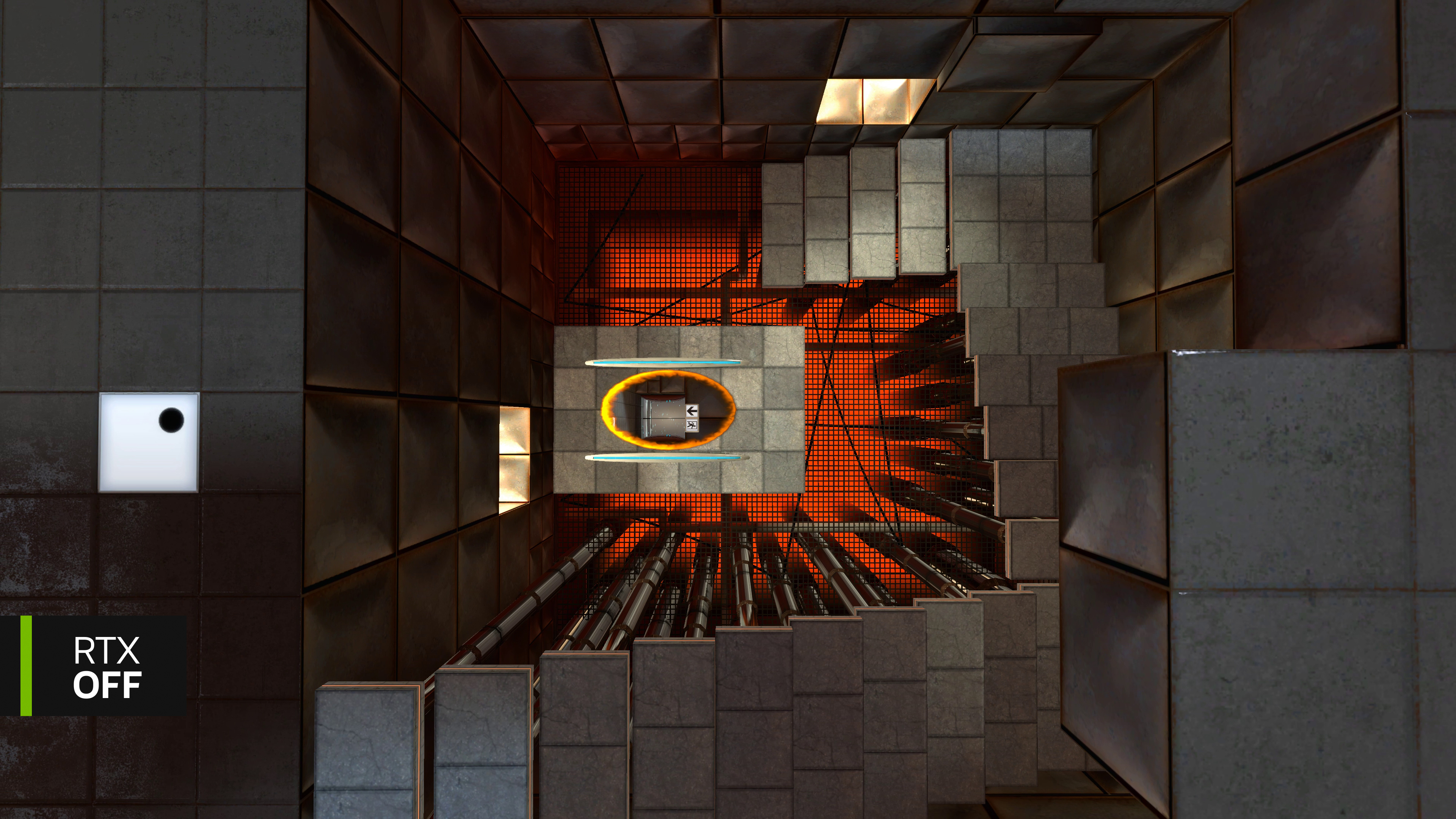
To maximize the benefit of upgraded materials and surfaces, our team remade many of Portal’s models. Silhouettes were retained to avoid changing their appearance, but in every other respect models were updated, increasing polygon counts and adding geometric detail, allowing them to interact flawlessly with ray tracing, and to look appropriately detailed alongside the game-changing ray-raced effects. A continually-seen example is on the Portal gun: its plastics react differently, and the cylinder is upgraded with ray-traced glass, with accurate fresnel properties, showing accurate real-time reflections that bend and distort across the glass as you attempt to escape from the test facility.
Even decals, such as bullet holes, blood splatters and scorch marks, have been upgraded with PBR properties. Each texture, model and decal has been reviewed and approved by Valve, ensuring Portal with RTX is evocative of the original game and the upgrades Valve introduced to the testing facility’s assets in Portal 2.
The end result is incredible, and with gameplay that’s still as good today as was in 2007, Portal with RTX delivers the definitive experience for anyone discovering Portal for the first time, or returning for a fresh playthrough.
Portal with RTX Is Accelerated By NVIDIA DLSS 3
Portal with RTX’s full ray tracing is beautiful, and incredibly demanding. To experience Portal with RTX at Ultra settings, NVIDIA DLSS and a powerful GeForce RTX GPU are recommended.
In Portal with RTX, DLSS 3 enables GeForce RTX 40 Series graphics card owners to experience full ray tracing at 4K at over 60 FPS, a previously unimaginable feat.
Owners of previous-generation high-performance GeForce RTX 30 graphics cards can leverage the critically-acclaimed DLSS 2 to play at over 60 FPS at 1440p, with Ultra Settings.
And a wide array of configurations can play Portal with RTX at 1920x1080, Ultra Settings, with the power of DLSS. For increased performance, settings can be reduced from Ultra to High.
Before playing Portal with RTX, please ensure your system matches or exceeds the requirements for CPU and RAM, for the best possible experience:
For GPUs outside the minimum spec (i.e. RTX 20 Series) and between minimum and recommended (i.e. some RTX 30 Series GPUs) the easiest path to better performance is to use GeForce Experience. Simply download the latest game ready driver (527.56), find Portal with RTX, and click Optimize to automatically configure the best combination of image quality and performance settings for your RTX 20 and 30 Series GPU.
Alternatively we have prepared some recommended graphic settings charts to help guide you to higher frames in your play experience. To adjust your graphics settings in-game press Alt-X to open the Remix graphics window.
These settings target to improve framerates and your experience will vary depending on your system configuration. These settings may also reduce visual quality.
Please do not alter the Portal “video-advanced” settings, as attempting to adjust these settings may lead to instability; press Alt-X to use the Remix graphics settings window instead! If you have already altered Portal advanced video settings we recommend you reset them to default.
The Best Responsiveness With NVIDIA Reflex
As NVIDIA DLSS revolutionized scaling and performance, NVIDIA Reflex has revolutionized low latency gaming, giving multiplayer gamers a competitive advantage, and making single-player games incredibly responsive. Pinpoint accuracy and timing are key to overcoming Portal with RTX’s most difficult challenges; NVIDIA Reflex reduces system latency in Portal with RTX by 33%, making gameplay smooth and more responsive, delivering the reaction time needed in critical moments.
Portal with RTX - Built With NVIDIA RTX Remix, The Ultimate Modding Platform
NVIDIA’s Lightspeed Studios loves bringing RTX to classic games, but each project requires many months of development effort to get everything product-ready. With these challenges in front of us we set out to make a modding platform that enabled gamers and modders of all ability levels to bring ray tracing and NVIDIA technologies to classic games. Combining Open Source technology like DXVK, the latest rendering technology from NVIDIA, and a toolchain built on Omniverse, we were able to achieve this vision. The result is the revolutionary NVIDIA RTX Remix.
RTX Remix supports an expansive list of DirectX 8 and DirectX 9 games with fixed function graphics pipelines. In a compatible game, press the hotkey and the surrounding scene is captured, ready to be enhanced. Then, load into the Remix Application, and use AI to super-res textures and transform materials to be physically based. Rebuild your favorite assets by hand using Omniverse-connected applications like Autodesk Maya and Adobe Substance, while you tweak the lighting and set the scene in Remix. Finally, hit a button to compile your changes into a mod that players simply place alongside the game’s .exe to play with full ray tracing and DLSS 3.
Built on NVIDIA Omniverse, RTX Remix solves a multitude of challenges for modders, making classic game graphics easier to mod, and opening the door to modding previously unmoddable games.
For graphics modding, it’s a game changer, and with the necessary time and expertise you too can craft a total upgrade like the one we’ve made for Portal. Learn about the complete classic game modding workflow in our NVIDIA RTX Remix article, and sign up for the beta here.
Portal with RTX Is Out Now!
Portal with RTX is available on Steam now, for free for all Portal owners. Download, install our latest Game Ready Driver, and get ready to enjoy the classic game in an entirely new light.
For more announcements, and news about games leveraging our range of incredible RTX technologies, head over to GeForce.com.
